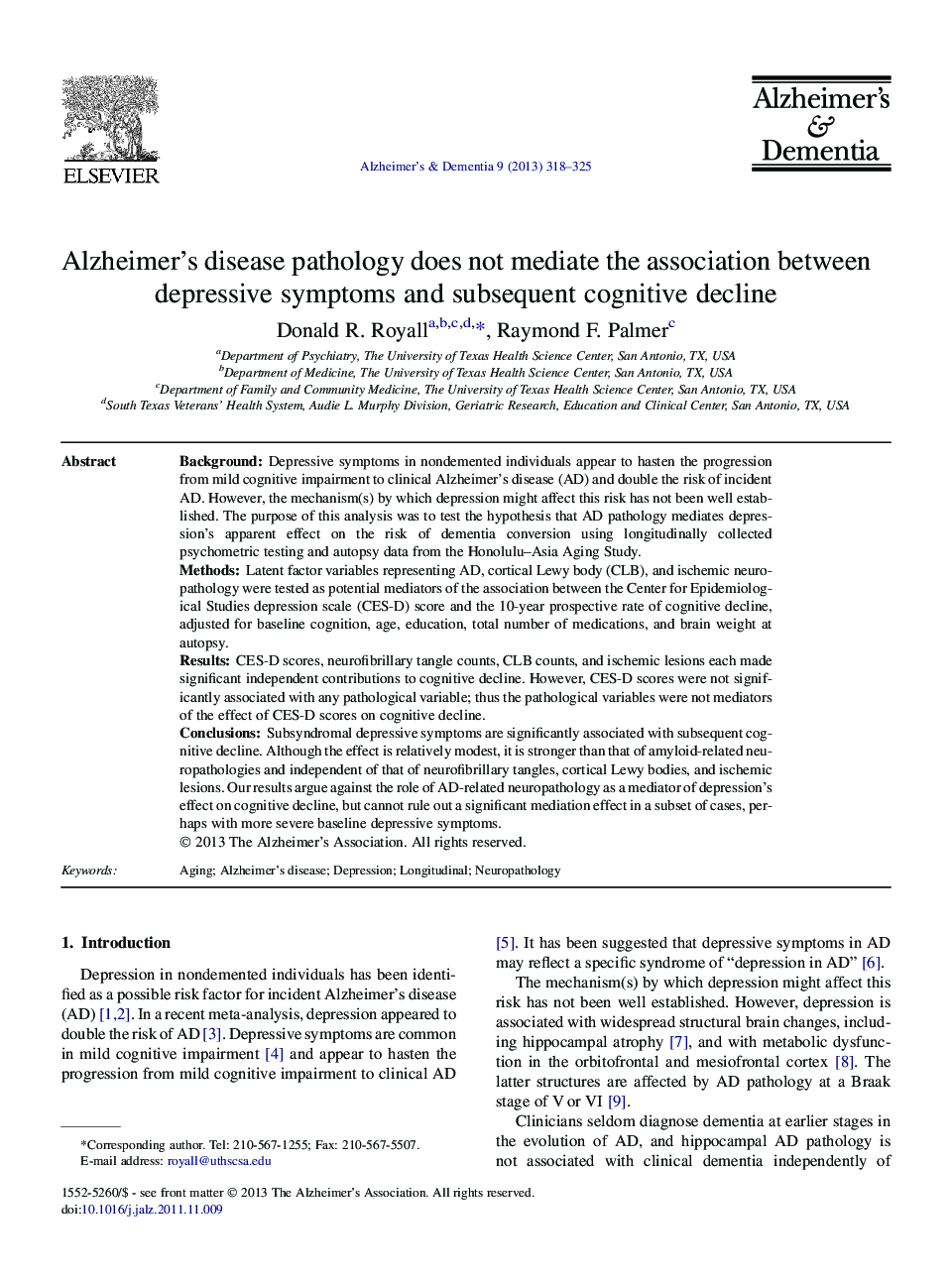| Article ID | Journal | Published Year | Pages | File Type |
|---|---|---|---|---|
| 5623212 | Alzheimer's & Dementia | 2013 | 8 Pages |
BackgroundDepressive symptoms in nondemented individuals appear to hasten the progression from mild cognitive impairment to clinical Alzheimer's disease (AD) and double the risk of incident AD. However, the mechanism(s) by which depression might affect this risk has not been well established. The purpose of this analysis was to test the hypothesis that AD pathology mediates depression's apparent effect on the risk of dementia conversion using longitudinally collected psychometric testing and autopsy data from the Honolulu-Asia Aging Study.MethodsLatent factor variables representing AD, cortical Lewy body (CLB), and ischemic neuropathology were tested as potential mediators of the association between the Center for Epidemiological Studies depression scale (CES-D) score and the 10-year prospective rate of cognitive decline, adjusted for baseline cognition, age, education, total number of medications, and brain weight at autopsy.ResultsCES-D scores, neurofibrillary tangle counts, CLB counts, and ischemic lesions each made significant independent contributions to cognitive decline. However, CES-D scores were not significantly associated with any pathological variable; thus the pathological variables were not mediators of the effect of CES-D scores on cognitive decline.ConclusionsSubsyndromal depressive symptoms are significantly associated with subsequent cognitive decline. Although the effect is relatively modest, it is stronger than that of amyloid-related neuropathologies and independent of that of neurofibrillary tangles, cortical Lewy bodies, and ischemic lesions. Our results argue against the role of AD-related neuropathology as a mediator of depression's effect on cognitive decline, but cannot rule out a significant mediation effect in a subset of cases, perhaps with more severe baseline depressive symptoms.
